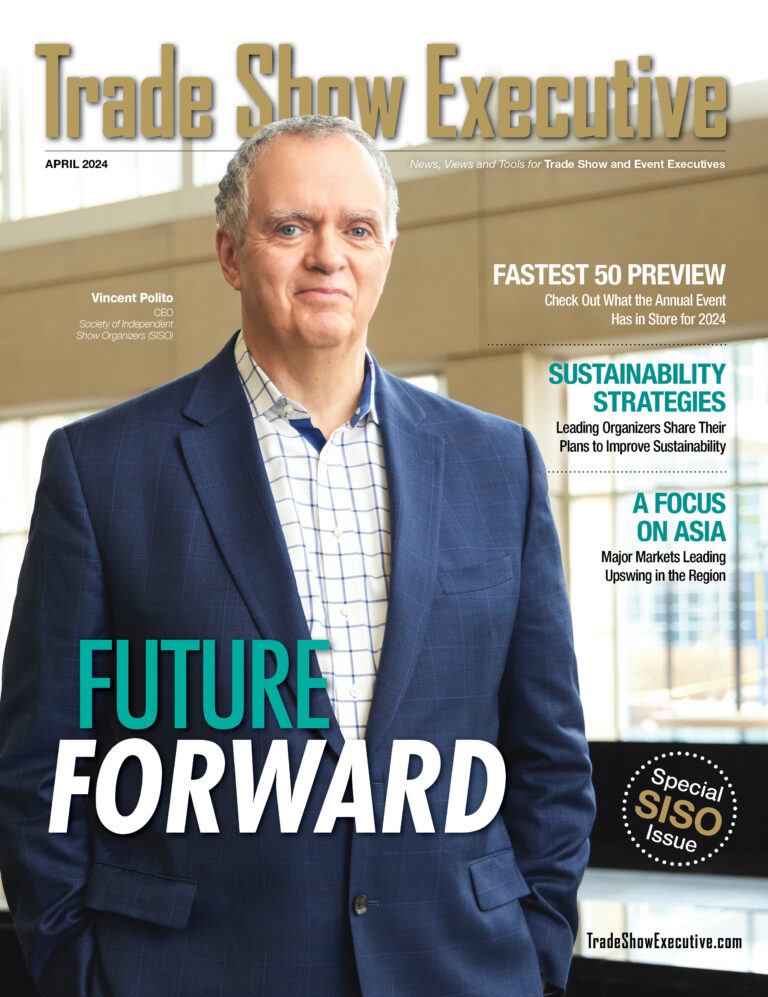2/1 UPDATE:
Industry organizations are making the case for a quick resolution for future travel as well as sharing information about the potential economic hit the industry might take if international partners and participants are unable to travel to the U.S.
A report conducted last month and issued by UFI, the global association of the exhibition industry, indicated that political events like the Brexit vote in the UK, attempted coup in Turkey and the Presidential election in the U.S. may have a significant impact on those countries’ events in the future.
UFI President Dr. Andreas Gruchow said in releasing the report that “International exhibitions rely on the free exchange of goods and ideas, and on business people from all around the world having access to these unique market places.”
The study includes data from 240 companies in 54 countries and indicated that more than half of the companies in the U.S. exhibition industry expect negative impacts from recent political turmoil. Specifically, 45% of UFI’s said they expect limited or significant impact on international trade shows while only 10% said they expect positive impact.
“Exhibitions are not only good business, they are also an enormous catalyst for economic growth,” he added.
Ryan Strowger, Chair of IAEE and an officer with the International Association of Amusement Parks and Attractions, also issued a statement noting that the global exhibitions industry is significant to worldwide economies, contributing more than $200 billion to those economies. Roughly a third of that ($77 billion) supports the U.S. gross domestic product, he said.
“More than 42 million visitors attend 9,400+ business-to-business exhibitions and events in the U.S. alone,” he said, adding that such impact makes members of IAEE and other organizations “rightfully concerned about the long-term ramifications placed on global travelers coming to the U.S.”
Reach Dr. Andreas Gruchow at (33) (0) 46 39 75 00 or via angela@ufi.org; Ryan Strowger at (703) 299-5776 or rstrowger@iaapa.org;
1/31 UPDATE:
Trade show, convention and trade professionals are adding their voices of concern about unintended consequences of the current travel ban imposed by Executive Order last Friday.
Concerns range from the effect on international attendees planning trips to events in the U.S. to whether the U.S. executive order will apply to citizens of countries like UK, Canada and who were born in one of the seven countries specified in the order.
U.S. Travel Association President and CEO Roger Dow said in a prepared statement that it is “imperative we find the right balance between security and facilitation and that we stand ready to support the administration and Congress to achieve this goal.” Dow also urged the administration to conduct its review of visa protocols quickly.
ASAE President and CEO John Graham said ASAE would continue to work with the Meetings Mean Business Coalition and other similar organizations to address the (security/visa) issue. “We’ll be closely monitoring this issue moving forward with a goal toward clarifying the order and making sure our members can operate effectively and facilitate international travel to their conferences and events,” he said in the prepared statement.
Travel Ban Could Impact Trade Show Participation
Washington, D.C. — The Executive Orders signed by President Donald Trump late last Friday that banned travel from seven primarily Muslim countries for 90 to 120 days created uncertainty and confusion for refugees but also for many travelers with visas and green cards who found themselves in the middle of a transition to new travel policies. The ban put a four-month hold on in-coming refugees from Syria and a three-month ban on six other countries: Iran, Iraq, Libya, Somalia, Sudan and Yemen.
In all, 109 travelers were detained at U.S. airports in what the President’s Press Secretary Scott Spicer called a “national security issue.” But the sudden change in policy created chaos at U.S. airports and left even Customs officials scrambling to sort out the details of how to implement the ban—especially for those with valid green cards.
A federal judge late Saturday said travelers with valid visas or refugee status caught in transit could stay in the country, but on Monday the Department of Homeland Security was not heeding that ruling. Legal residents in the U.S. on green cards wondered if they dared to leave.
Meanwhile, airports across the country were faced with trying to comply with the new rules on the ground decide who could legally come in to the country and airlines were faced with how to handle refunds or rebooking for refugees with tickets who were not allowed to travel. Delayed arrivals and departures added to the confusion.
Several airlines ended up issuing travel waivers for flyers impacted by the ban and assisted passengers in rebooking flights or obtaining refunds. American Airlines, Delta and several Gulf carriers said they would issue refunds and attempt to contact affected customers for future flights.
As of late Monday, several members of Congress on both sides of the aisle, including Senators John McCain, Lindsay Graham, Dianne Feinstein and Chuck Schumer had called for revisions or a stay on enforcement.
Trade Show Executive will monitor this issue with regard to its effect on upcoming shows with significant international participation and provide regular updates to our readers.











